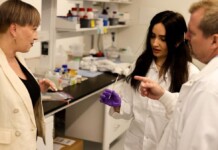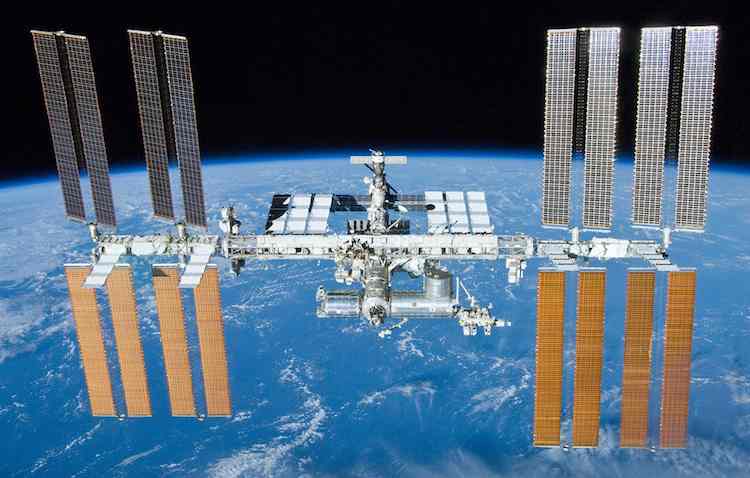This week, a food company announced that they have successfully taken “one small step for man and one giant leap for mankind” in producing lab-grown meat in space.
Aleph Farms, an Israeli food company that grows cultivated beef steaks, says that they managed to grow the material aboard the International Space Station 248 miles (339 kilometers) away from any natural resources.
Aleph Farms’ production method of cultivated beef steaks relies on mimicking a natural process of muscle-tissue regeneration occurring inside the cow’s body, but under controlled conditions.
Within the framework of this experiment on the Russian segment of the ISS, a successful proof of concept has been established in assembling a small-scale muscle tissue in a 3D bioprinter developed by 3D Bioprinting Solutions, under micro-gravity conditions. This cutting-edge research in some of the most extreme environments imaginable, serves as an essential growth indicator of sustainable food production methods that don’t exacerbate land waste, water waste, and pollution. These methods are also aimed at feeding the rapidly growing population, predicted to reach 10 billion individuals by 2050.
Through an international collaboration set to reach new heights with 3D Bioprinting Solutions, Meal Source Technologies, and Finless Foods— Aleph Farms, co-founded with the food-tech incubator The Kitchen, and Professort Shulamit Levenberg of the Technion university, is making a significant progress toward fulfilling its promise: to enable on Earth unconditional access to safe and nutritious meat anytime, anywhere, while using minimal resources.
In an historic report published on the 10th of September 2019, the Intergovernmental Panel on Climate Change, established by the United Nations, has emphasized the integral contribution of the conventional animal farming methods on climate change, creating “a challenging situation worse and undermining food security.” The 107 authors who contributed to the report have shed light on climate change effects on land, especially desertification, land degradation, and diminishing availability of food supplies.
“In space, we don’t have 10,000 or 15,000 liters (4,000 gallons) of water available to produce one kilogram (2.205 pound) of beef,” says Didier Toubia, co-founder and CEO of Aleph Farms.
LOOK: This is the First Ever Image of a Black Hole and Scientists Are Calling It a ‘Dream Come True’
“This joint experiment marks a significant first step toward achieving our vision to ensure food security for generations to come, while preserving our natural resources.
Jonathan Berger, who is CEO of the mission’s partnering organization The Kitchen, added: “The mission of providing access to high-quality nutrition anytime, anywhere in a sustainable way is an increasing challenge for all humans. On Earth or up above, we count on innovators like Aleph Farms to take the initiative to provide solutions to some of the world’s most pressing problems, such as the climate crisis.”
(WATCH the news coverage below) – Photo by NASA
Feed Your Friends Some Positivity By Sharing The Good News To Social Media…




















